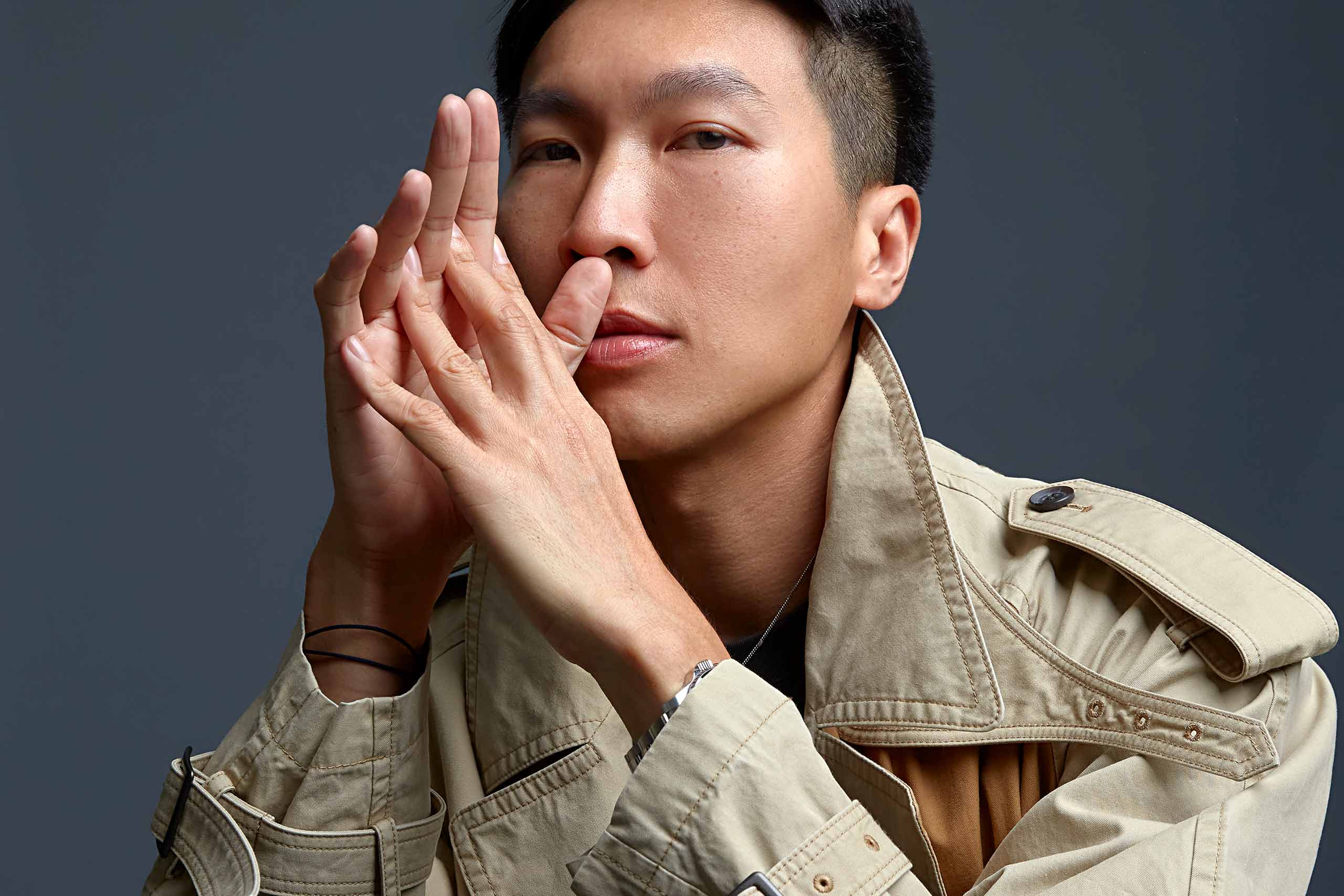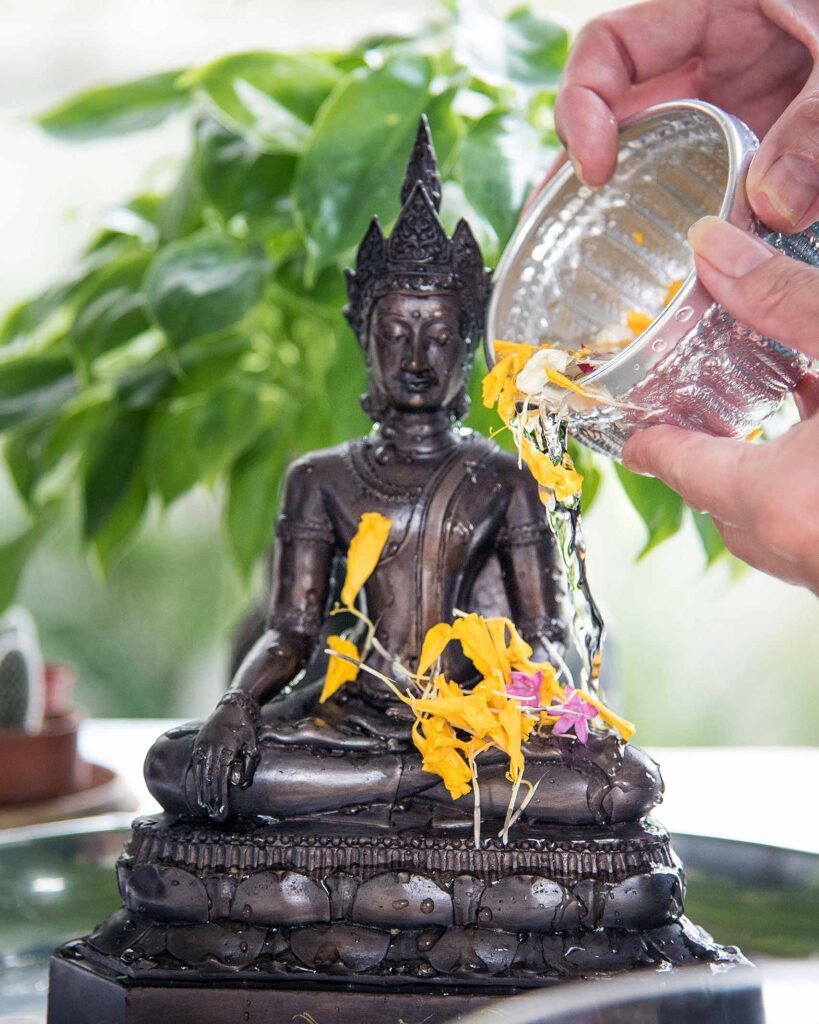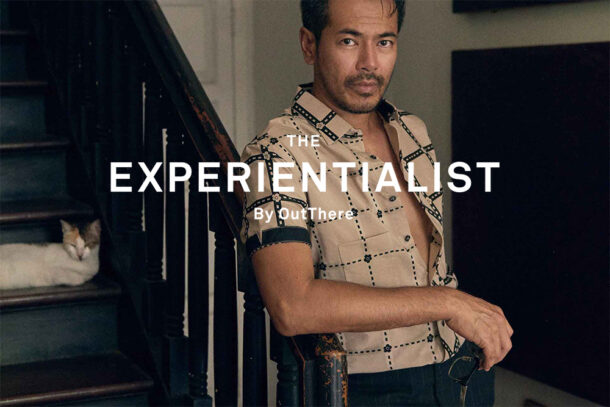Pop Kampol has been an integral part of our universe since our inception 15 years ago, when he worked as a stylist in London alongside OutThere’s Creative Director, Martin Perry. Returning to Bangkok in 2012, Pop swiftly rose through the ranks of the country’s fashion magazine world and eventually became Editor-in-Chief of GQ Thailand in 2021. Now, he opens up about the meaning of Songkran, and where travellers searching for an authentic celebration should head.
Scouring the internet, there seems to be surprisingly little written for an international audience about Songkran, the Thai New Year celebration, from a local point of view. The result is a basic understanding of the cultural and religious significance of the most important event in the Thai Buddhist calendar. In the eyes of many, it has been reduced to a glorified water fight, perceptions captivated by a recent episode of, well, you know which show.
As always, we at OutThere want to go deeper, so for travellers to the country who seek to understand local culture and traditions, we decided to get in touch with one of our dearest, long-time collaborators, GQ Thailand’s Editor-in-Chief, Pop Kampol. His meteoric rise to the top of the country’s editorial world was made possible thanks to Pop’s considerable talent, encyclopaedic knowledge of fashion, an incredible work ethic and unshakable serenity, which reflects his Buddhist practices. Forever generous, he once again spared us a few minutes to share his thoughts on the Thai New Year tradition of Songkran.
What does Songkran mean to you and how do you celebrate it?
When I was young, the Songkran festival meant a fun time: playing with friends and having water fights. But as I’ve grown up, the meaning of Songkran has changed a lot for me, and I believe for most Thai adults, as well. It has become a festival of respect. I’ve come to understand that Songkran holds a similar meaning to Christmas in the West – in the sense that it’s a time for family gatherings, where the younger generation pays respect to the older generation by pouring jasmine-scented water over their hands. In return, elders give their blessings for health and a good life. These days, if I celebrate Songkran, it’s simply about meeting my mom or someone I respect, and spending time with them.
Does the festival hold meaning with Thailand’s queer community, and would you say Songkran is relevant to LGBTQ+ travellers?
Water fights are a big part of the Songkran fun, but the festival also carries a deeper meaning for both straight and LGBTQ+ communities. Activities like splashing water and applying white talcum powder on people’s faces create opportunities for people to meet, make new friends, and, in a way, even turn into a dating activity.
Since Thailand is one of the most LGBTQ-friendly countries, these traditions also become a fun way for LGBTQ+ individuals to connect, make new friends, or even find a potential partner if they’re looking for one. A tip for LGBTQ+ festival-goers: head to areas popular with the community, such as Silom, especially near Silom Soi 2 and Silom Soi 4, where the celebrations are always lively and welcoming.
How do you recommend visitors celebrate it? Are there specific destinations within Thailand that have their own expressions and ways of celebrating Songkran?
When travelling to Thailand for Songkran, one thing everyone thinks about is the water fights around Khao San Road or Silom. But what’s also interesting during this season are the temple fairs held across the country, especially outside Bangkok in places like Chiang Mai and other popular tourist provinces.
Temple fairs are worth visiting as they offer a nostalgic, vintage fair vibe, with plenty of affordable and delicious street food, fun games, and a glimpse into Thai culture. You’ll also experience the tradition of locals visiting temples to pour water over Buddha statues as a sign of respect. It’s a perfect mix of traditional culture, religion, and good food – an ideal way to unwind after a long day of water fights.
What should visitors understand about Songkran? How can they be respectful but still enjoy the festivities?
The safest tip is to stick to designated areas for water fights: look for places where many Thai people are already playing. Avoid splashing water in random locations, especially on streets where people might be commuting, or on those dressed in office attire or formal clothing.
Also, never pour or splash water directly on someone’s face or head to prevent any misunderstandings or conflicts. Instead, aim for the shoulders, arms, or torso as a more respectful and polite approach.
A great tip for everyone: if you’re gentle with others, like slowly pouring water on someone’s shoulder instead of aggressively splashing, it can actually earn you extra points in making connections. It subtly implies a bit of flirting, making it a fun and charming way to interact during the festival.
Are you excited about the future of LGBTQ+ rights and culture in Thailand now that same sex marriage is legal?
Yes, I think this is great for our LGBTQ+ community. Just before the law passed, one of the biggest Thai movies, The Paradise of Thorns, was released. It clearly showed the struggles LGBTQ+ couples face when marriage laws don’t recognise them. After its release, same-sex marriage became more accepted among the straight community as well.
I also believe that these laws aren’t just beneficial for the livelihoods of Thai LGBTQ+ individuals but also for the Thai economy on a larger scale. They open up many business opportunities in the country, and the timing is perfect – Thailand is now one of the biggest producers of Boys’ Love (BL) series in the world.
What other rights are yet to be won?
The same-sex marriage law that passed does not yet include changes to honorific titles, such as Mr. to Miss or Miss to Mr. for transgender individuals. This is still being debated in the government.
How do you feel about Season 3 of The White Lotus being set in Thailand?
It’s perfect! How could a TV series set in a tropical holiday destination not take place on a Thai island, right? And it’s even more amazing that they managed to get Lisa from BLACKPINK in the show, too. I hope the series brings lots of tourists. Welcome to Thailand, ka!
Aside from Koh Samui, which is in the spotlight thanks to the show, what’s a good (less well-known) destination within Thailand that visitors should not miss out on?
Apart from Koh Samui, take a boat trip to Koh Tao (Turtle Island) and spend a few days there. Koh Tao is one of the most beautiful islands in Thailand, with pristine white sand and crystal-clear water. Snorkelling and diving are a must on this island – I highly recommend both!
If you’re looking for somewhere on the other side of the sea, Krabi is also an incredible destination. My favourite resort there is the Rayavadee, which offers breathtaking views and a true hideaway island experience.
Photography courtesy of Pop Kampol







